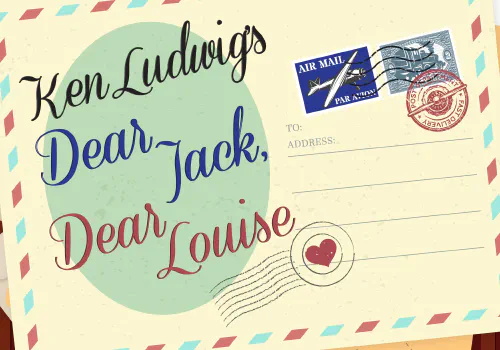By Cheryl Smith
One of Shakespeare’s best loved and most frequently produced plays, Romeo and Juliet is arguably the greatest love story ever told. Audiences throughout the centuries have been drawn to the tale of ill-fated lovers, hoping that just once, the letter will reach Romeo in time, but understanding that, if it does, the love story loses its universal appeal. Audiences experience tension as they watch the lovers’ story, and this very tension adds to the experience of the play. Part of what makes Romeo and Juliet so appealing, in fact, is the emotional rollercoaster ride audiences embark on from the moment the Prologue is spoken.
Not surprisingly, much of this emotional upheaval is due to the play’s brilliant language, which includes such well-known phrases as “That which we call a rose by any other word would smell as sweet” (2.2.43-4); “Deny thy father and refuse thy name” (2.2.33); and “Parting is such sweet sorrow” (2.2.184).
Schoolchildren know the verses spoken by Romeo and Juliet, in part because the timelessness of Shakespeare speaks to the love we all hope to find in our lives. Most audience members are unaware, however, of just how deftly Shakespeare uses language throughout the play. In addition to the masterful way he tells his story, Shakespeare cleverly controls the element of rhyme in the script to manipulate the audiences’ feelings of tension as they watch the play.
Typically, rhyme is a unifying device, artfully tying together words and their speakers through the satisfying sound of verbal repetition. Melodious and agreeable, rhyme is often used to create a harmonious atmosphere, as is evidenced in the countless love poems in which it appears. With this in mind, audiences naturally assume that Romeo and Juliet, the definitive play about love, is filled with abundant rhyming episodes that bind the two lovers together. However, this is seldom the case. When audiences expect rhyme to be present, either none exists or it clashes with the action onstage; likewise, when audiences expect a lack of rhyme, it flourishes. Both of these cases create an unconscious tension for viewers of the play.
For example, in Act 3 Scene 1 when Tybalt kills Mercutio, Romeo kills Tybalt, and Romeo flees-the very moment Romeo has sacrificed his life with Juliet for the honor of his friend-the scene shifts into rhyme:
Benvolio: Hence, be gone away!
Romeo: O, I am fortune’s fool!
Benvolio: Why dost thou stay?
(3.1.134-135)
Rhyme in this section of the script signals to audiences that Romeo’s actions will unite the two lovers, yet we know this is not the case; Romeo’s actions begin the downfall of his relationship with Juliet. Similarly, when Juliet plans to kill herself after learning of Romeo’s action, she speaks in rhyme:
Juliet: He made for you a highway to my bed;
But I, a maid, die maiden-widowed.
Come, cords, come, nurse. I’ll to m wedding bed,
And death, not Romeo, take my maidenhead!
(3.2.134-37)
As a unifying force, the rhyme suggests Juliet should, in fact, kill herself, never consummating her marriage to Romeo. Instead, the rhyme is pulling Romeo and Juliet apart by coupling it with action antagonistic toward the lovers. Often when strife occurs in the action onstage, rhyme is coupled with it, and this awkward marriage of harmonious rhyme and discordant events unconsciously adds to the tension audiences feel while watching Romeo and Juliet. But this conflict also occurs when audiences expect rhyme to appear in the verse and it doesn’t.
When Romeo and Juliet meet (2.1), they do, in fact, share several lines of rhyming verse. However, their scenes afterward contain very little rhyme. In their famous balcony scene-the exciting moment where Romeo and Juliet profess their eternal love for each other-very little of the verse is in rhyme. Some of the most famous lines in the history of theatre come from within this scene. For example:
Juliet: O Romeo, Romeo, wherefore art thou Romeo?
Deny thy father and refuse thy name!
(2.2.32-33)
and
Juliet: What’s in a name? That which we call a rose
By any other word would smell as sweet
(2.2.43-44).
In arguably the most romantic scene in the literary cannon of love stories, audiences unconsciously anticipate that rhyme will help join the two lovers together. Rhyme should dominate this scene in order to grant audiences an emotional union, yet only one-tenth of the lines rhyme. Furthermore, following this scene, Romeo and Juliet share very few rhyming lines of verse. Once again, rhyme is absent where it is expected, and the tension between the action and the rhyme contributes to the conflict audiences experience while watching this play.
Rhyme plays a crucial role in Romeo and Juliet by adding to the tension audiences experience while watching the play. During scenes where the action of the script brings Romeo and Juliet together, rhyme is obviously absent, and in scenes where actions tear the lovers apart, the dialogue is often saturated with rhyme. Since rhyme is distinctly at odds with the action onstage, audiences naturally feel the tension this clash creates. In fact, because tension is an integral component in this play, rhyme refuses to allow audiences to escape it. From the first scene that uses rhyme to describe the fate of the star-crossed lovers to subsequent scenes that unite the lovers without the use of any rhyme, tension intensifies within audiences to guarantee they never lose sight of the fact that the love between Romeo and Juliet is forever doomed.










